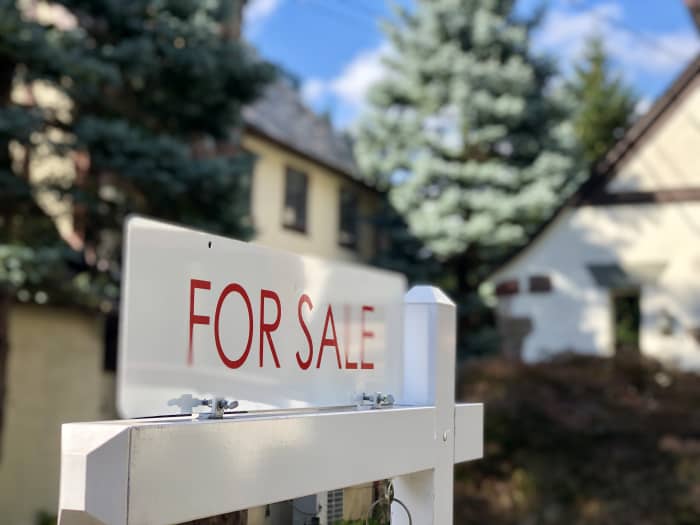5 economists and real estate pros share what will happen to mortgage rates in 2022

30-year mortgage rates will likely tick upward through the course of 2022 — the precise number rates will increase, however, is anyone’s guess. But experts do have their guesses.
Getty Images/iStockphoto
Many pros predict that mortgage rates will continue to rise in 2022, but expect ups and downs along the way. We looked into the latest mortgage rate predictions from big real estate players — and asked five experts — to examine what might happen to mortgage rates this year.
Mortgage rates could end up at 4.5%, some pros forecast
Based on recent forecasts projected by Fannie Mae, the National Association of Realtors, the Mortgage Brokers Association and others, 30-year mortgage rates will likely tick upward through the course of 2022 — the precise number rates will increase, however, is anyone’s guess. But experts do have their guesses.
“The Federal Reserve may keep pushing long-term rates upward by trimming its vast holdings of mortgage bonds. Mortgage rates will have their ups and downs in 2022 and I wouldn’t be surprised if they end the year at 4.5% or higher,” says Holden Lewis, home and mortgage expert at NerdWallet. Greg McBride, chief financial analyst for Bankrate.com, says he could see — if inflation continues to accelerate and the Fed remains behind the inflation curve — rates hitting 4.5% as well. That said, “if the Fed is aggressive in raising short-term rates to rein in inflation, this would be good for mortgage rates,” says McBride.
“Now the question is if the Fed can tame inflation and how many rate increases we may see, with some analysts saying the Fed could call for anywhere from five to seven rate hikes this year,” says Bill Dallas, president of Finance of America Mortgage.
Others have lower predictions: Fannie Mae recently noted that the 30-year fixed mortgage rate is “now projected to close the year at 3.7%.” Lawrence Yun, chief economist at the National Association of Realtors, tells MarketWatch Picks that higher mortgage rates are expected, and in January NAR also forecast rates hitting 3.7%.
Understand the Federal Reserve’s role in this
“The Federal Reserve, the world’s largest single investor in mortgage-backed securities (MBS), is slowing its purchases of MBS and plans to stop completely by early March. Subsequently, but without providing supporting detail, the Fed has indicated that it will not reinvest the proceeds of maturing MBS into new MBS,” says Fannie Mae chief economist Doug Duncan. “Rather it plans to shift the reinvestment of those funds to the purchase of Treasury securities.”
This means private investors will likely need to step into the role of the Federal Reserve as purchasers of MBS, which would require a rise in the MBS yield as incentive for them to do so, says Duncan. “Ultimately, this additional cost would be passed through to borrowers via the mortgage rate,” says Duncan.
For their part, “investors are anticipating aggressive actions by the Fed to rein in inflation, driving rates higher,” says Paul Thomas, Zillows’ vice president of capital markets for mortgages. What’s more, markets will be focused on updates from the Fed in the coming weeks as well as any developments with invasion of Ukraine, either of which could cause additional rate fluctuations, says Thomas. The Fed’s next meeting is scheduled for March 15th and 16th.
What does this all mean for homebuyers?
Don’t panic about potentially rising rates, pros say, though admittedly it’s best to get the lowest rate you can. “Compared to the 80s when interest rates were in the double digits, a 4% interest rate keeps credit relatively cheap,” says Dallas. The combination of rising interest rates and rising house prices will push some would-be buyers out of the market, which may result in reduced competition after the summer buying season is over, says Lewis. So if you’re keen on potentially avoiding a multiple offer situation that results in an over-asking sale, you may want to wait to buy a home. Then again, if you find a house that you love now — there’s no time like the present.



